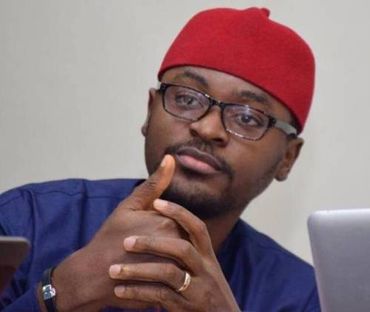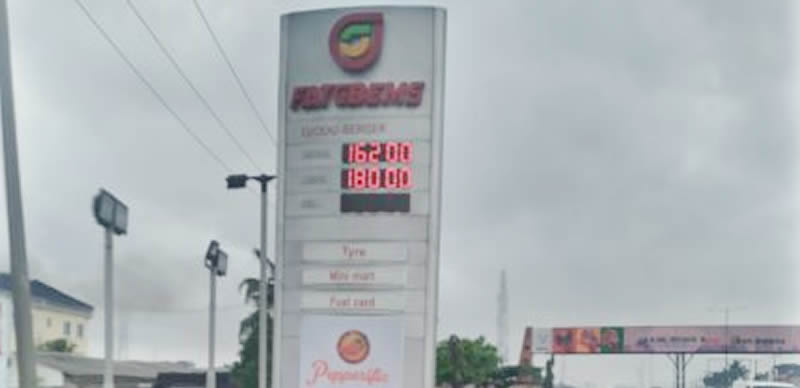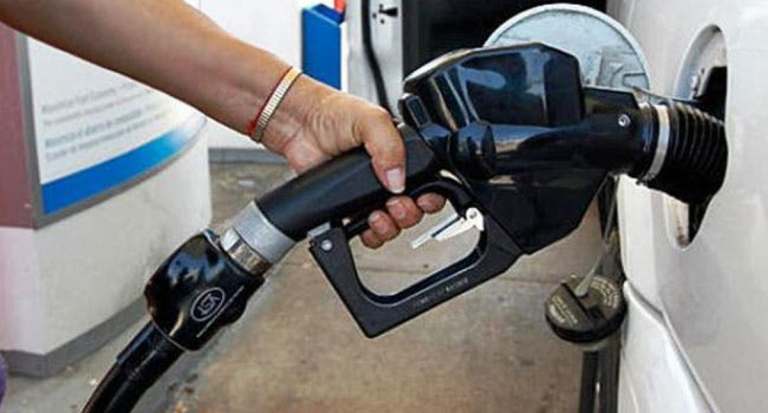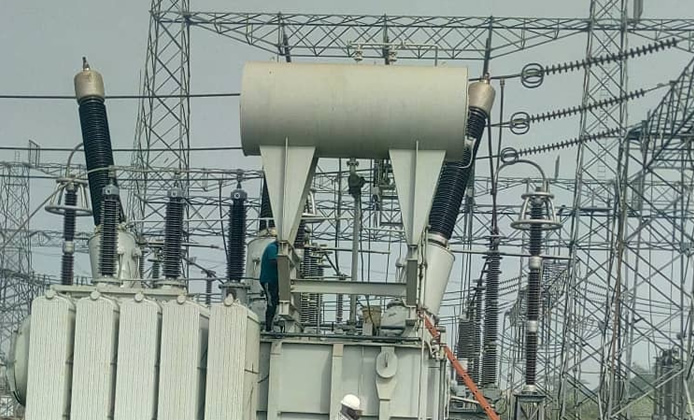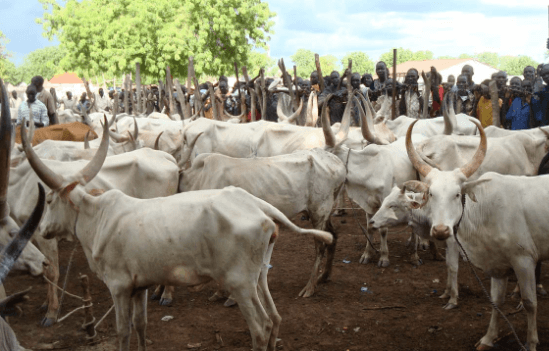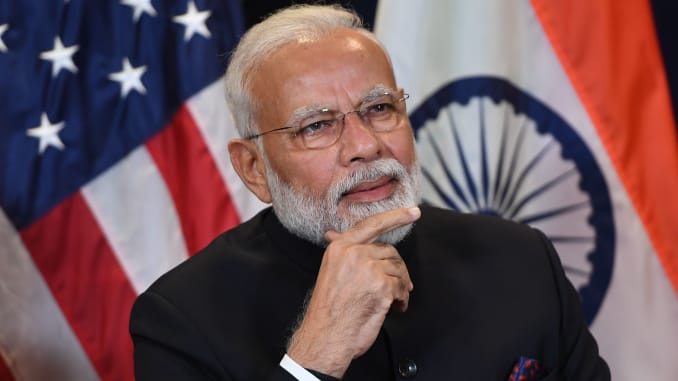……FG to inaugurate use of CNG, LPG in October ……..TUC says government action wicked , demands immediate reversal Fuel marketers across the country adjusted their pump prices on Thursday to between N 158 and N 162 per litre of petrol, saying a further increase in global crude oil prices would push the pump price of petrol higher. Petrol prices have increased for three straight months , rising from N 121. 50– N 123. 50 per litre in June to N 140. 80- N 143. 80 in July , N 148-N 150 in August and N 158- N 162 in September . The Petroleum Products Marketing Company , a subsidiary of the Nigerian National Petroleum Corporation had, on Wednesday , increased the ex -depot price of Premium Motor Spirit ( petrol) to N 151. 56 per litre from N 138. 62 per litre but later reduced it to N 147. 67. The ex – depot price is the price at which the product is sold to marketers at the depots. When the collapse of global crude oil prices triggered the reduction of the pump price of petrol from N 145 per litre to N 125 in March , the Petroleum Products Pricing Regulatory Agency said it would advise the NNPC and oil marketing companies on the monthly “ guiding retail price ” at which the product shall be sold across the country. The Minister of State Petroleum Resources , Timipre Sylva, in a statement on May 15, said deregulation was approved on March 19 this year . “ But as you all know , PMS and other petroleum products are very strategic commodities, so you cannot allow the prices of these commodities to be determined wholly by the marketers, ” he added . In June , the Executive Secretary , PPPRA , Abdulkadir Saidu, said , “ For the avoidance of doubt, it is instructive to state that no private individual or group has the mandate to fix prices of petroleum products , however , the statutory regulatory body is saddled with the responsibility of advising guiding prices . ” But the PPPRA failed to issue any guiding prices in August and September and has remained silent since then , despite repeated calls and messages sent to the agency by one of our correspondents on the issue . The spokesperson of the agency, Kimchi Apollo , however , told our correspondent on Thursday that he would get information on the development and revert . He had yet to do so as of the time of filing this report. The National Operations Controller, Independent Petroleum Marketers Association of Nigeria , Mr Mike Osatuyi , told one of our correspondents that the increase in petrol pump prices was a reflection of the global oil prices. “ In July , the crude oil price was around $43 per barrel . But rose to about $44-$45 in August. Last Monday , it increased to $46. If the crude oil price falls to $40, petrol prices will come down. But if it goes up to $50, we should be expecting petrol price to rise to about N 163 per litre if the exchange rate remains the same, ” he said . Osatuyi stressed the need for government to create a level playing field by allowing marketers to also have access to foreign exchange at the official rate like the NNPC to enable them to import products. The Chairman , Major Oil Marketers Association of Nigeria , Mr Adetunji Oyebanji, said earlier on Thursday that pump prices would have to be adjusted to reflect realities of the increase of ex – depot prices by PPMC . “ However , the magnitude of the increase , timing and location is a decision left to each company. Consistent with global best practices, MOMAN does not dictate prices to its members as this would be anti -competition in a fully deregulated market. “ We welcome government ’ s action in allowing the market to determine prices, as we believe it will prevent the return of subsidies , while allowing operators the opportunity to recover their costs . This will, in the long run , encourage investment and create jobs, ” he added . But a groundswell of public opposition across the country have greeted the hike in petrol prices. FG to inaugurate use of CNG, LPG in October The Federal Government will in October inaugurate the use of Compressed Natural Gas (CNG) and Liquefied Petroleum Gas (LPG) for motorist as alternative to use of petrol in the country. Chief Timipre Sylva, the Minister of State for Petroleum Resources, made this known while briefing newsmen in Abuja on Thursday. Compressed Natural Gas (methane stored at high pressure) is fuel that can be used in place of gasoline, diesel fuel and liquefied petroleum gas. He said that introduction of CNG, LPG and others would help to reduce the impact of the high cost of premium Motor Spirit (PMS) also known as petrol on Nigerians. He said that since the Federal Government was no longer in the business of fixing the price of petroleum products, its focus was to protect the interest of Nigerians. He said that CNG and LPG was cheaper, cleaner and globally accepted. “The solution to reduce the pains with increase in petrol is to create another source that is cheaper, cleaner and global friendly. Introducing LPG, CNG is creating a toll gate and alternative route for people that may not be comfortable to have a choice. “The introduction of the new products will be cheaper and better, in the end Nigerians will be happy for it,” he said. On how it will be rolled out across the country, he said that all the Nigerian National Petroleum corporation (NNPC) petrol stations would be used for the project. He said that an LPG and CNG skid to dispensed the products would be fixed in all the NNPC stations across the country. He said some private marketers had also requested to




